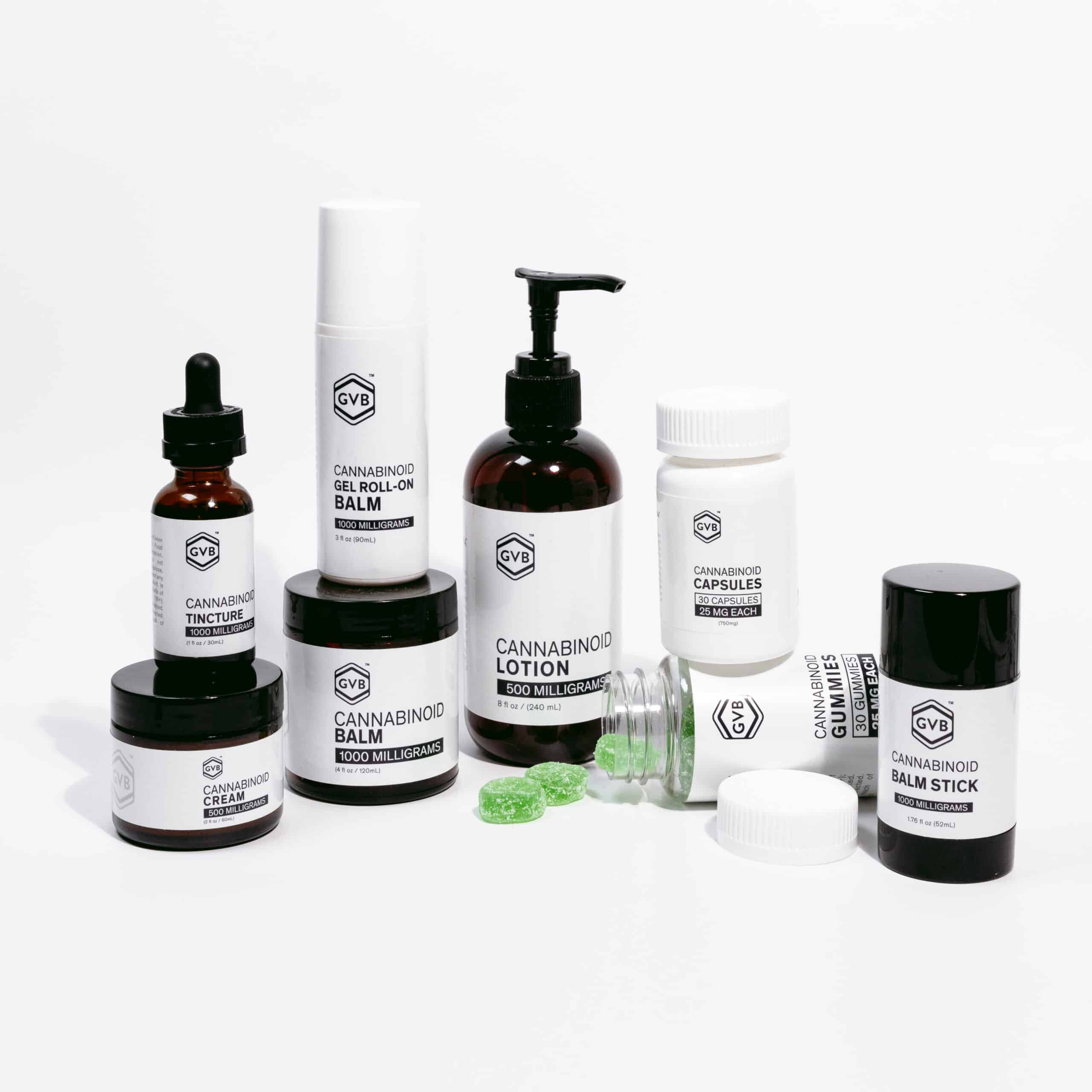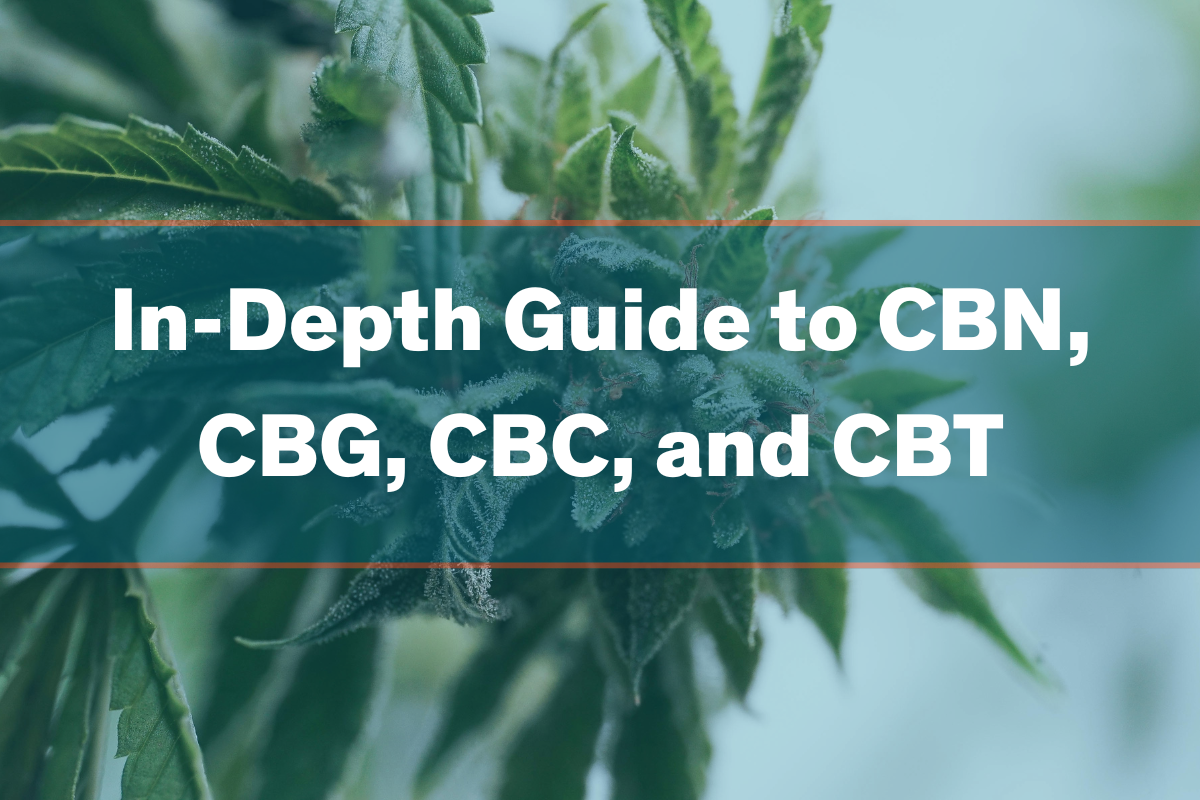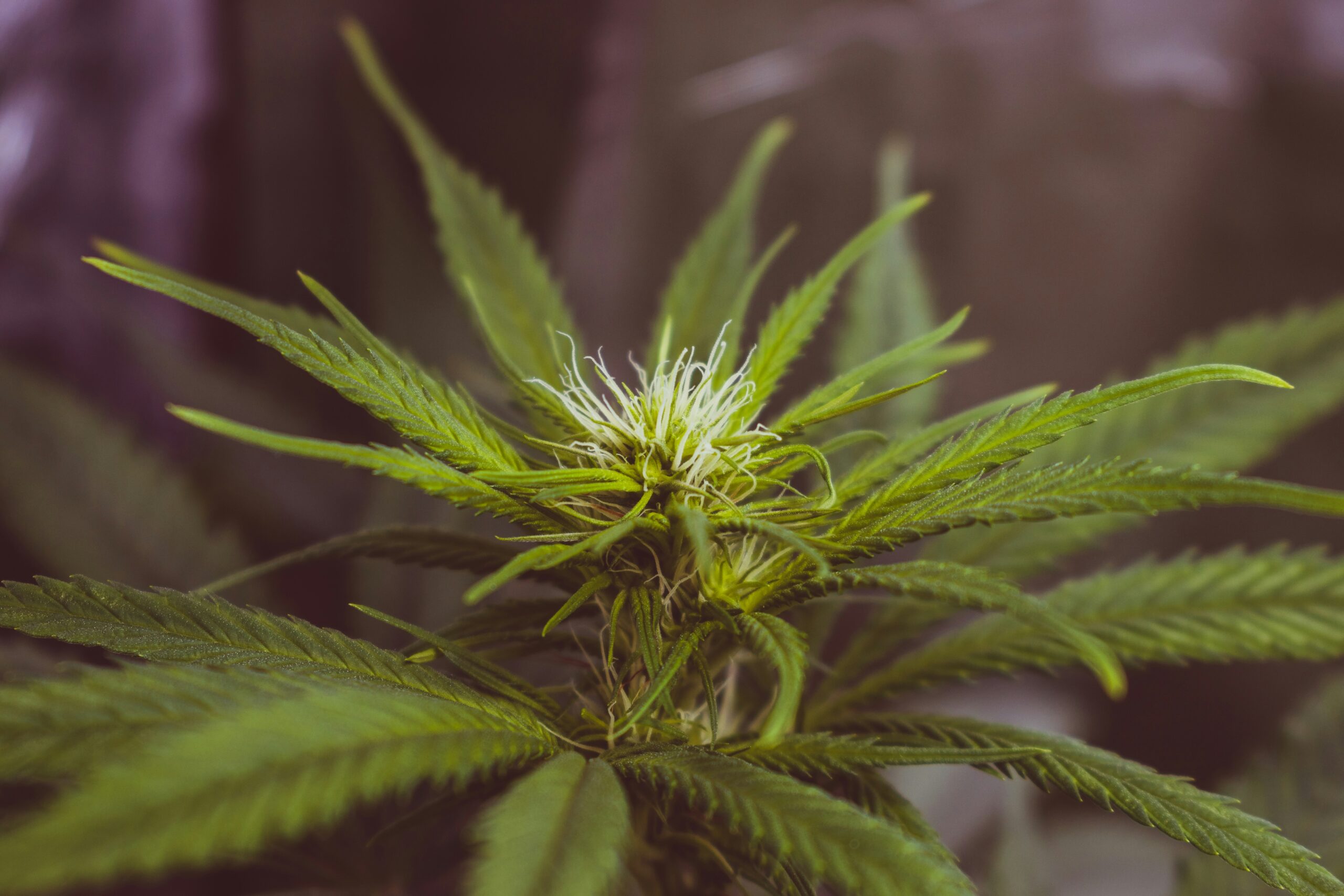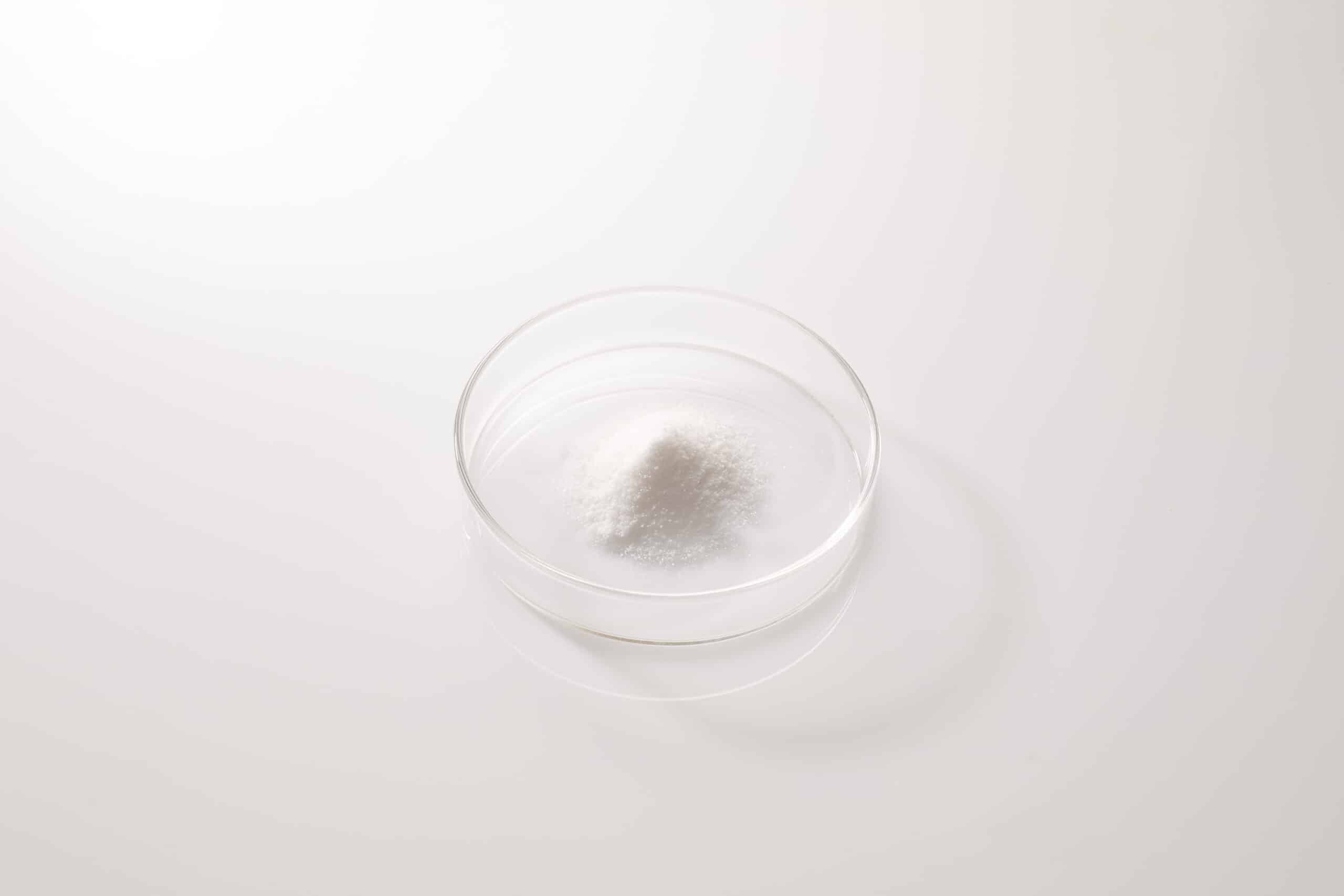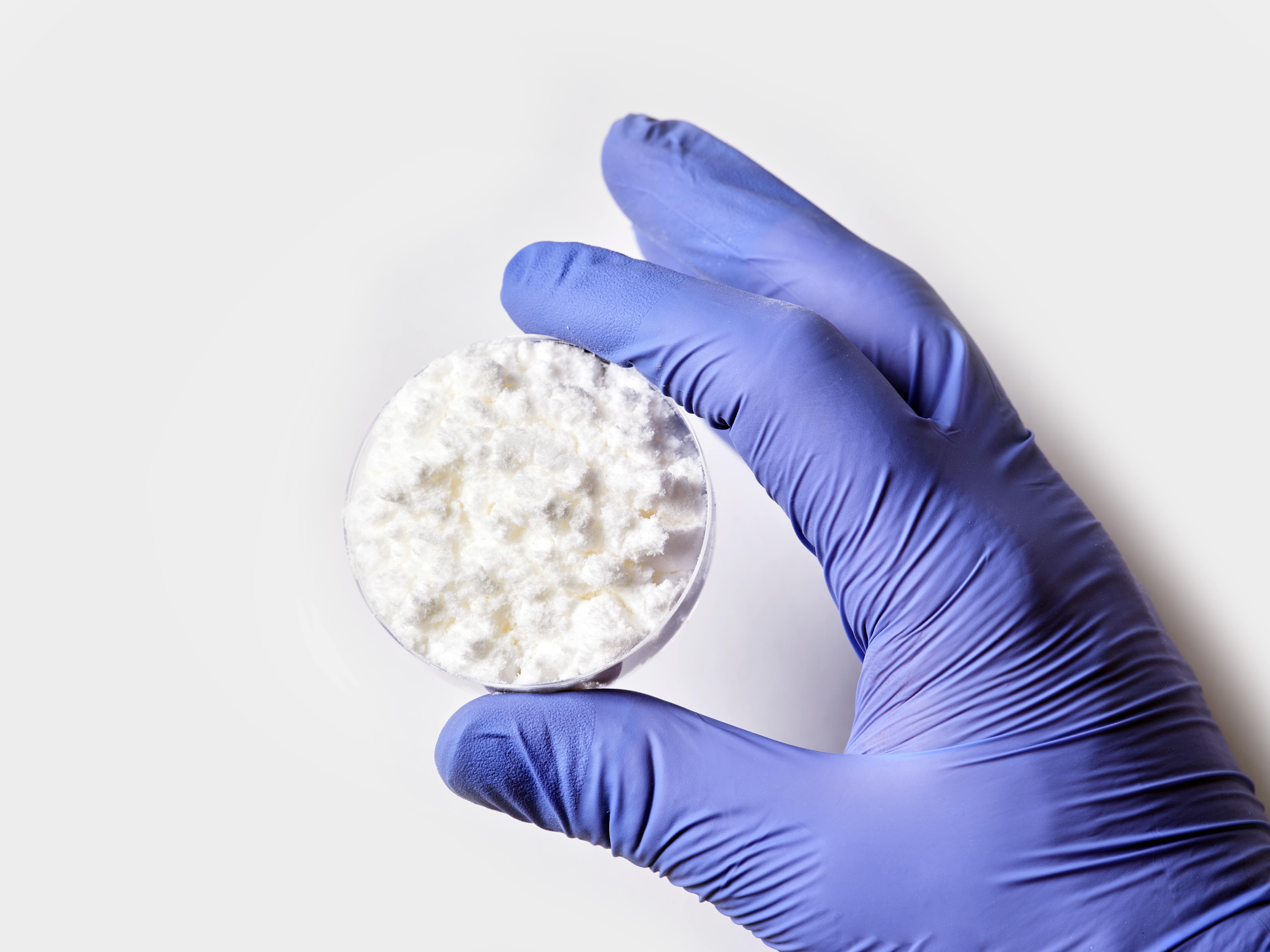There are multiple methods used for hemp extraction and a lot of confusion around whether CO2 is a “cleaner” way to extract cannabinoids. Extractors that use CO2, often make the claim that their extraction method is superior to ethanol extraction, and some even go as far as to say their CO2 extraction method is “solvent-less”. But, did you know that every CO2 extraction method uses ethanol or a similar solvent for winterization?
That’s just one of the surprising facts you’ll learn in this guide. Discover the truth behind the differences between CO2 and ethanol extraction, and find out why we choose ethanol at GVB Biopharma.
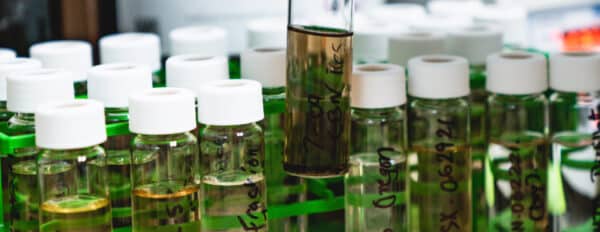
What is hemp extraction?
Hemp extraction is the process of removing desirable substances from hemp and concentrating them into usable extracts. You can extract any type of hemp or any part of the plant, but hemp buds contain the highest concentrations of cannabinoids and other desirable substances.
To remove lipid-based cannabinoids and terpenes from cannabis, a solvent must be used. This solvent essentially dissovles the cannabinol-bearing sacs (trichomes) off plant matter and collects the resulting oil in a catchment container.
This process is more complicated than it might appear. Extracting hemp entails a variety of steps, materials, tools, and skill-sets that only a qualified extractor can deliver. Even with all your ducks in a row, it’s still possible to make serious mistakes during hemp extraction.
What types of hemp extraction are there?
These days, there are close to a dozen different hemp and cannabis extraction methods. Some are so pure they don’t use any solvents at all, but only a few methods are appropriate for commercial applications.
The top three types of hemp extraction used commercially are:
1. Ethanol extraction
2. CO2 extraction
3. Hydrocarbon extraction
We’ll explore the benefits and detractors of each method in detail below.
Ethanol extraction
At this stage in cannabis science, ethanol extraction is the most efficient and reliable option available. Provided with proper evaporation and recovery protocols, ethanol extraction offers the same degree of purity as CO2, and the unique properties of ethanol as a solvent make it inherently more suited for extracting hemp, a plant with both aqueous and lipid components.
GVB’s proprietary cryogenic extraction process which uses cold ethanol means the winterization step is skipped altogether and only desirable parts of the plant are targeted on the initial extraction.
One of the worst-kept secrets of the hemp industry is that CO2 extraction uses solvents like ethanol or even hydrocarbons during the purification process. The initial extraction could be called “solventless,” but CO2 extract loses the right to this title the moment it’s exposed to additional substances.
How does ethanol extraction work?
1. Drying and grinding of raw biomass
2. Ethanol extraction: first run
3. Ethanol evaporation
4. Winterization/clarification with recovered ethanol: second run
5. Crude oil distillation
6. Distillate can then be rendered into crystalline isolate
Pros and cons of ethanol extraction as simply as possible, let’s state why GVB Biopharma chooses ethanol extraction:
Pros
1. Efficient
2. Sustainable
3. High-purity
4. Fewer steps – no winterization needed
Cons
1. Unwanted substances can also be extracted, but they’re easy to remove later. (GVB’s proprietary cryogenic extraction process mitigates this).
CO2 extraction
Compared to ethanol, CO2 sounds a lot more benign, and you’re partially right. CO2 is one of the building blocks of life, and the human body turns O2 into CO2 with every breath.
Matters may not be as simple as they appear, though. CO2 extraction methods are more expensive than ethanol extraction, and the results it delivers are not notably better.
How does CO2 extraction work?
1. Drying and grinding of raw biomass
2. CO2 extraction
3. Ethanol winterization/clarification
4. Crude oil distillation
5. Distillate can then be rendered into crystalline isolate
Pros and cons of CO2 extraction
To be fair, CO2 and ethanol are neck-and-neck when it comes to commercial viability. In the end, though, we’re confident that ethanol comes out ahead.
Pros
1. High purity
2. Associated with good quality due to marketing
Cons
1. Expensive
2. Wasteful
3. Marketing can be deceptive
4. Not truly “solventless” because the solvent is required for refining
5. Often still uses ethanol during one of the purification stages
*It should be noted that unrefined CO2 oil can be considered solventless, but because it contains fats and lipids, it is unusable in finished products and must be purified using a solvent like ethanol or hydrocarbons.
Hydrocarbon extraction
In hydrocarbon extraction, a hydrocarbon molecule such as butane or propane is exuded through biomass or other hemp plant matter to derive concentrated extract. Of all available hemp extraction methods, however, hydrocarbon extraction is the most dangerous both to extractors and consumers.
Why is hydrocarbon extraction still used, then? Only because it’s cheap.
How does hydrocarbon extraction work?
1. Drying and grinding of raw biomass
2. Hydrocarbon extraction
3. Solvent removal (semi-effective)
4. Ethanol winterization/clarification
5. Crude oil distillation
6. Distillate can then be rendered into crystalline isolate
Pros and cons of hydrocarbon extraction
How does hydrocarbon hemp extraction compare to ethanol or CO2? Not very favorably, we’re afraid.
Pros
1. Cheap
2. Time-honored
Cons
1. Dangerous
2. Volatile
3. Carcinogenic solvents are left behind in products
4. Extracts also often taste/look worse
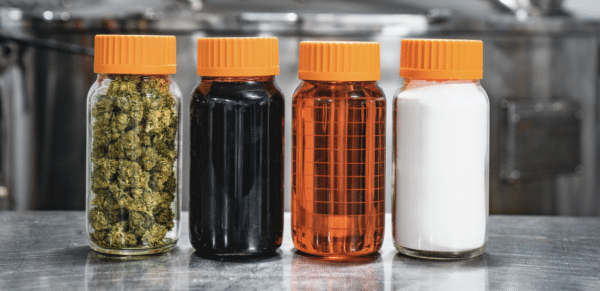
CO2 extraction vs. ethanol extraction: detailed breakdown
In the end, there isn’t much bad we can say about CO2 as an extraction process. As a commercial enterprise, however, CO2 extraction pales in comparison to ethanol extraction without offering any significantly enhanced benefits.
At GVB Biopharma, it’s our goal to offer the highest quality products at the best prices. In pursuit of this overall ethos, we chose ethanol as our extraction process. Contrary to popular belief, ethanol is no less pure than CO2, and always remember: pretty much every company that says they extract with CO2 uses ethanol in their process.
1. Ethanol extraction is the most ethical option
2. It delivers the best results for the lowest prices
Can hemp extraction really be “solventless?”
Yes, there are hemp extracts that could be considered truly solventless, but CO2 extraction certainly is not one of them. If it isn’t ethanol, another type of solvent must be used during the CO2 distillate clarification process, making it impossible for CO2 extractors to have a completely solventless extraction method truly solventless.
Examples of truly solventless hemp extracts include bubble hash and heat rosin. Both methods can be considered cottage industries at best, though, and can’t hold a candle to commercial ethanol or CO2 output.
Why ethanol extraction is simplest, cleanest, & most sustainable
Ethanol hemp extraction has a few distinct benefits. First, it’s less expensive by far than CO2 extraction, passing on savings to brands and consumers. Next, you can extract both lipid (oil-based) and aqueous (water-based) substances with ethanol, allowing a wider spectrum of substances to be removed from cannabis.
This dual nature of ethanol extraction also makes it easier to clarify raw extract in further distillation phases. Closed-loop ethanol extraction is highly sustainable, and as a resource, ethanol is easier and less environmentally harmful to obtain than CO2.
Ethanol extraction: the purest available method
Ethanol evaporates in the atmosphere without leaving any residual solvents behind. As long as your ethanol extraction process is clean, you should derive clean results.
Acquiring, containing, and recapturing CO2 used for extraction is laborious and inefficient. Since CO2 extractors almost invariably use ethanol at some point in the process anyway, relying exclusively on CO2 for extraction is more for optics than it is in the pursuit of any practical agenda.
Ethanol vs. CO2 hemp extraction FAQs
1. Is CO2 extraction better than ethanol?
No, CO2 extraction is not necessarily superior to ethanol extraction. In the early days of the hemp industry, certain extractors used inferior ethanol extraction methods, giving the process itself a bad name. When done correctly, though, ethanol extraction can be just as clean while also retaining more of the plant than CO2 extraction.
Ethanol extraction is also inherently more cost-effective, allowing funds to be apportioned to better equipment instead of just trying to stay up to date with the latest CO2 extraction fads. Overall, ethanol extraction should be considered the superior process due to its economical and versatile benefits.
2. What is the best CBD extraction method?
Out of all the available options, ethanol extraction is generally considered to be the best overall CBD extraction method for both small-time and major extractors. Comparatively, both hydrocarbon and CO2 extraction have considerable issues. Hydrocarbon extraction is inherently dirty, for instance, making it very hard to ensure extracts made with this process are not contaminated.
CO2 extraction, for its part, is costly and labor-intensive while only potentially providing arguably superior results to ethanol extraction. While CO2 extraction is often touted as “solventless,” that’s an inaccurate claim given the fact that CO2 is itself a solvent. As long as ethanol extraction is done correctly, it can be just as clean as CO2 extraction.
3. Why is ethanol good for extraction?
Some of the major benefits of ethanol cannabinoid extraction include its cost-effectiveness and versatility. While CO2 extraction eliminates many of the cannabinoids and terpenes present in hemp extract, ethanol extraction can be calibrated to be much gentler, resulting in extracts that better preserve the hemp plant’s natural potential to provide the entourage effect.
Ethanol extraction equipment is far less specialized than CO2 extraction machinery, allowing producers to prioritize high-quality equipment over gimmicky, finicky machines that are ultimately rendered unnecessary by ethanol extraction being such a viable alternative. In the end, CO2 extraction is more hype than it is substance while ethanol extraction is exactly what it claims to be — a simple and cost-effective method for extracting cannabinoids.
4. Is CO2 extraction better?
No, there is no reason to believe CO2 cannabinoid extraction is inherently better. At best, CO2 extraction can perform some of the same functions as ethanol extraction, but at a much higher cost while damaging the hemp plant’s fragile compounds.
Sources
1. Bowen, J. K.; Chaparro, J. M.; McCorkle, A. M.; Palumbo, E.; Prenni, J. E. The Impact of Extraction Protocol on the Chemical Profile of Cannabis Extracts from a Single Cultivar. Scientific Reports 2021. 11, 21801. Retrieved from: https://www.nature.com/articles/s41598-021-01378-0
2. Devi, V.; Khanam, S. Comparative Study of Different Extraction Processes for Hemp (Cannabis sativa) Seed Oil Considering Physical, Chemical and Industrial-scale Economic Aspects. Journal of Cleaner Production 2019, 207, 645-657. Retrieved from: https://aghealth.net/wp-content/uploads/2019/02/Comparativestudyofdifferentextractionprocessesforhemp[2].pdf
3. Lazarjani, M. P.; Young, O.; Kebede, L; Seyfoddin. A.; Processing and Extraction Methods of Medicinal Cannabis: A Narrative Review. Journal of Cannabis Research 2021, 3(32). Retrieved from: https://jcannabisresearch.biomedcentral.com/articles/10.1186/s42238-021-00087-9
4. Ruth, A.; Gryniewicx-Ruzicka, C.; Trehy, M.; Kornspan, N.;Coody, G.Consistency of Label Claims of Internet-Purchased Hemp Oil and Cannabis Products as Determined using IMS and LC-MS: A Marketplace Survey. Journal of Regulatory Science 2016, 03, 1-6. Retrieved from: https://journals.tdl.org/regsci/index.php/regsci/article/view/33

